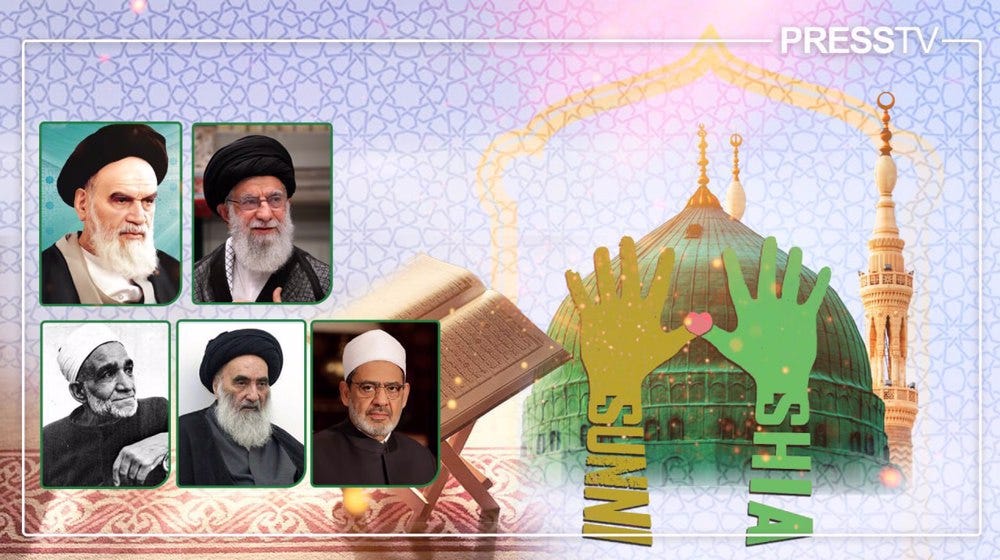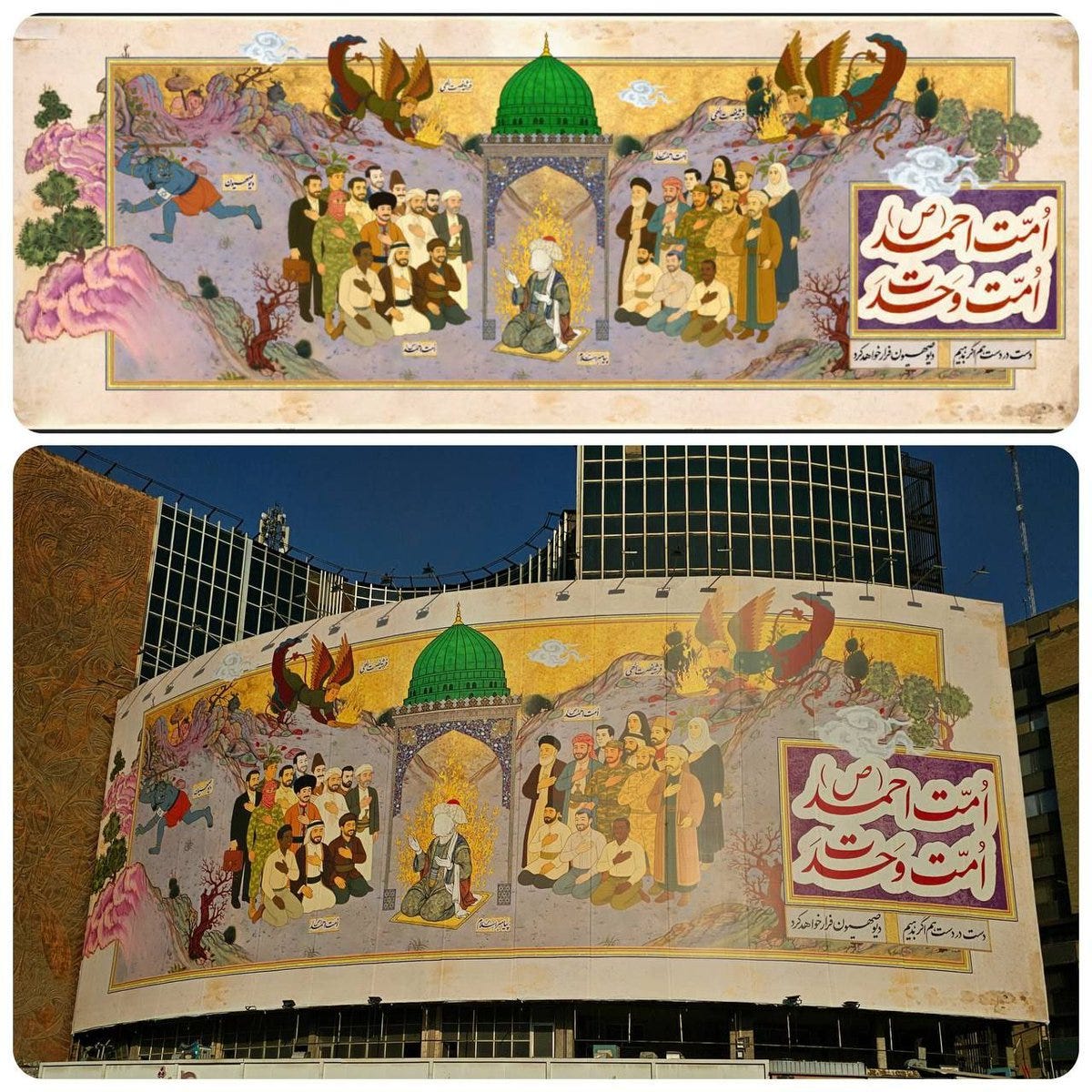Embracing Brotherhood: Unity Illuminates Tehran on the Prophet’s 1,500th Birth Anniversary
How banners of Shia-Sunni solidarity in Iran’s capital echo Imam Khomeini’s enduring message and resonate across the Muslim world
Tehran is alive with renewed hope and unity, its streets transformed into vibrant canvases of togetherness as Iranians observe the 1,500th birth anniversary of Prophet Muhammad (PBUH). Everywhere one looks, banners stretch over boulevards and squares, conveying deep devotion to the Holy Prophet and a powerful message of Shia-Sunni solidarity. Passers-by pause to reflect, capturing moments that bridge centuries of shared faith and reinforce the timeless ideals Iran continues to champion.
At the heart of these vibrant displays lies a legacy seeded decades ago by Imam Khomeini and upheld today by Ayatollah Seyyed Ali Khamenei. Imam Khomeini, revered not only for leading a political revolution but also for pioneering the cause of Islamic fraternity, sought to transcend sectarian fault lines and nurture a cohesive community rooted in shared devotion.
Unity Week: A Vision Realised
One of Imam Khomeini’s most profound initiatives was the establishment of “Unity Week,” bridging the Shia observance of the Prophet’s birth on the 17th of Rabi’ al-Awwal with the Sunni celebration on the 12th. By celebrating the intervening days as a shared period of reflection and fellowship, Khomeini encouraged Muslims to focus not on differences, but on the unifying power of faith. That declaration continues to shape practices across the Islamic world.
A Call Against Division and External Threats
Imam Khomeini’s unity message was grounded in Qur’anic teachings and clear-eyed political insight:
“The believers are but brothers… Sunnis and Shias are brothers and should avoid all disputes… If the Muslims were a united, single fist, none could rise against them.”
He warned of foreign powers using sectarian divides to weaken Muslims, urging collective resistance:
“Cast aside the sectarian and regional disputes... the unity of the Muslim nations... must come together.”
Ayatollah Khamenei echoed this vision, spotlighting the significant role of Sunni Muslims in defending unity—such as the thousands of Sunni martyrs who stood alongside Shia Iranians during the Sacred Defence. He also recalled how, during exile in Sistan and Baluchestan, his partnership with Sunni scholars inspired him to observe Unity Week in Iranshahr decades ago.
Across Denominations: A Shared Call for Harmony
The pursuit of unity extends beyond Iran’s borders. Egypt’s Al-Azhar, a beacon of Sunni scholarship, has long promoted convergence. Former head Shaikh Mahmood Shaltoot pioneered Dar al-Taqreeb al-Madhahib al-Islamiyyah to foster inter-denominational dialogue. Today, Al-Azhar’s Grand Imam Sheikh Ahmed al-Tayeb stands ready to convene with Shia leaders, united in purpose.
Echoes of this spirit resonate in the words of Grand Muftis and luminaries:
Muhammad Sayyid Tantawy: “Anyone who believes that there is no god but Allah and that Muhammad is his Messenger is definitely a Muslim... We are all Muslims.”
Sheikh Mohammed al-Ghazali: “It is the duty of all Muslims to unite against enemies of Islam and their propaganda.”
Ayatollah Seyyed Hossein Borujerdi—reflecting with Sheikh Abd al-Majid Salim—prayed for solidarity over separation, emphasising knowledge and kindness over division.
Faith in Unity, Unity in Faith
As Tehran’s streets glow with banners of harmony, they reflect a message carried through the ages: Islam’s true strength lies in unity—not in fragmentation. From Khomeini’s founding principles to Khamenei’s contemporary calls, and echoed by Sunni and Shia scholars alike, the lesson is clear: sectarianism is a manufactured barrier, easily dismantled by shared faith and purpose.
In commemorating the Holy Prophet’s (PBUH) 1,500th birth anniversary, Iran illustrates that only through solidarity can Muslims collectively fulfil the dignity and promise of Islam in our world.
Reference: PressTv



